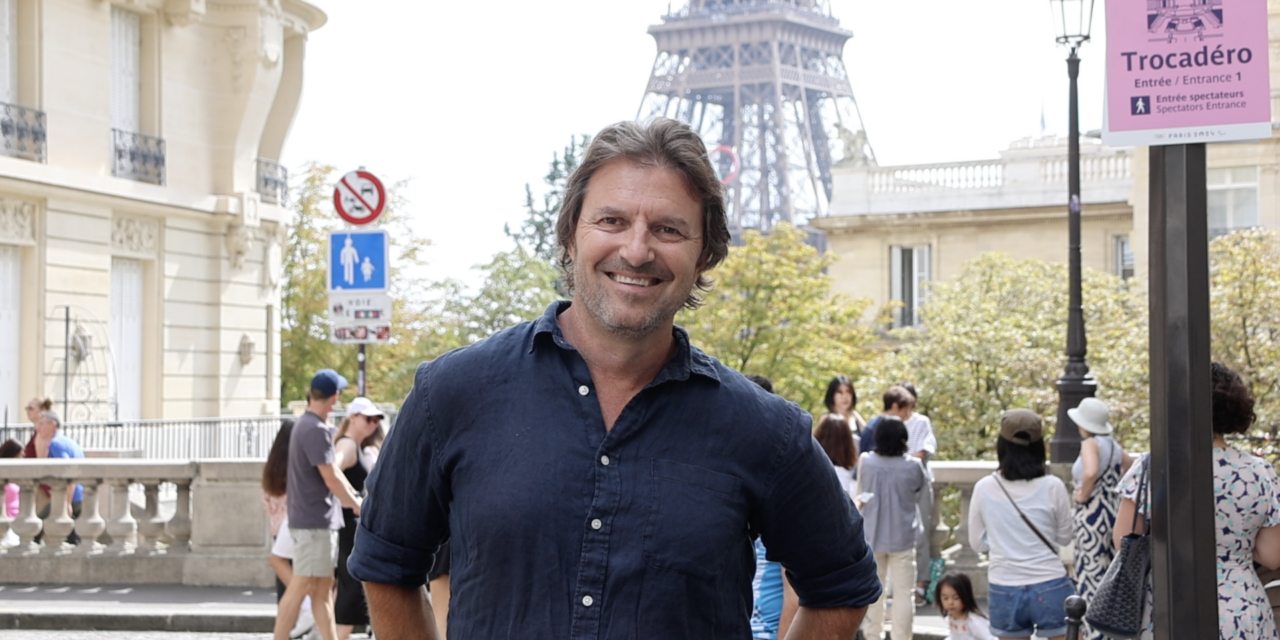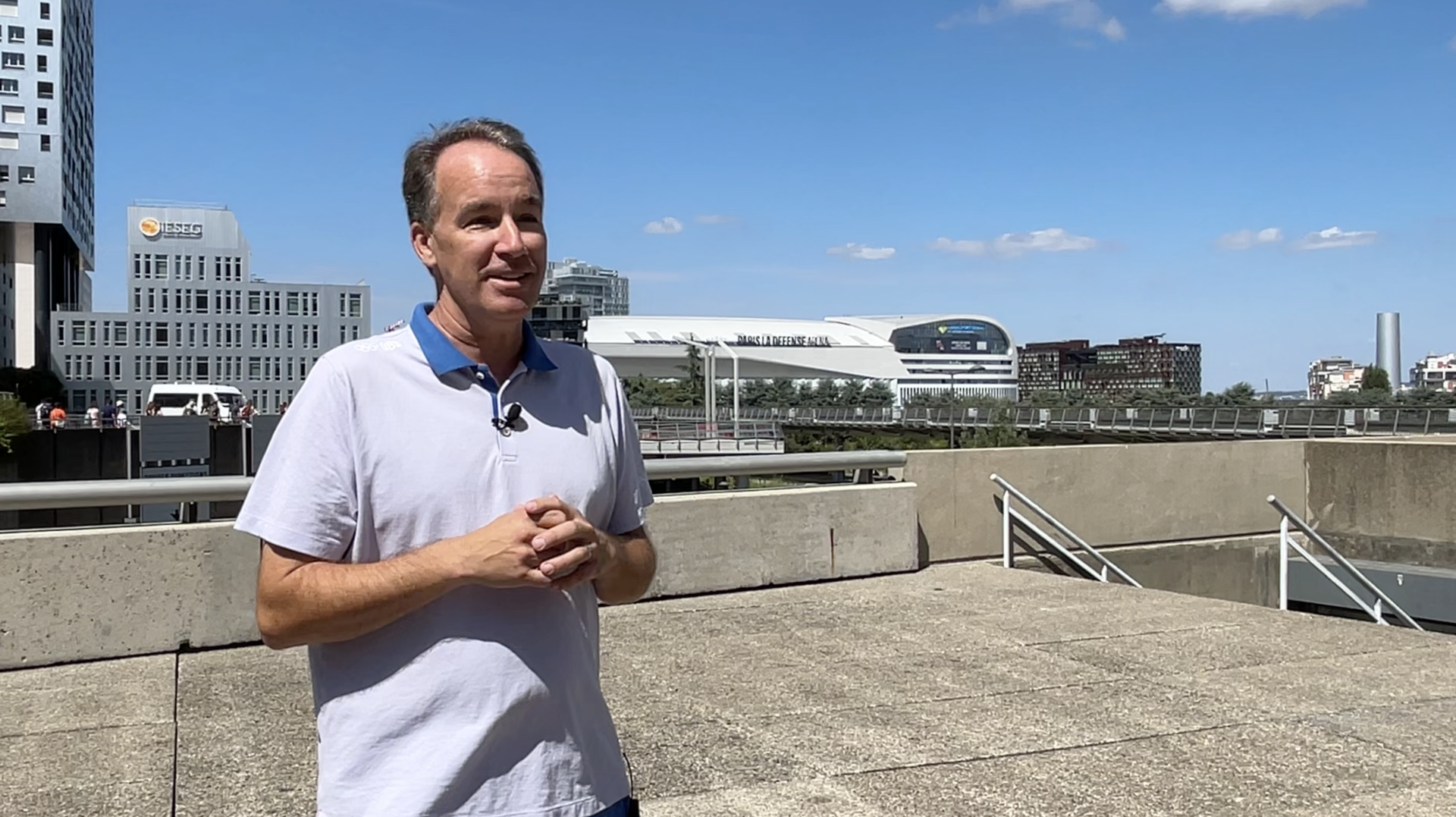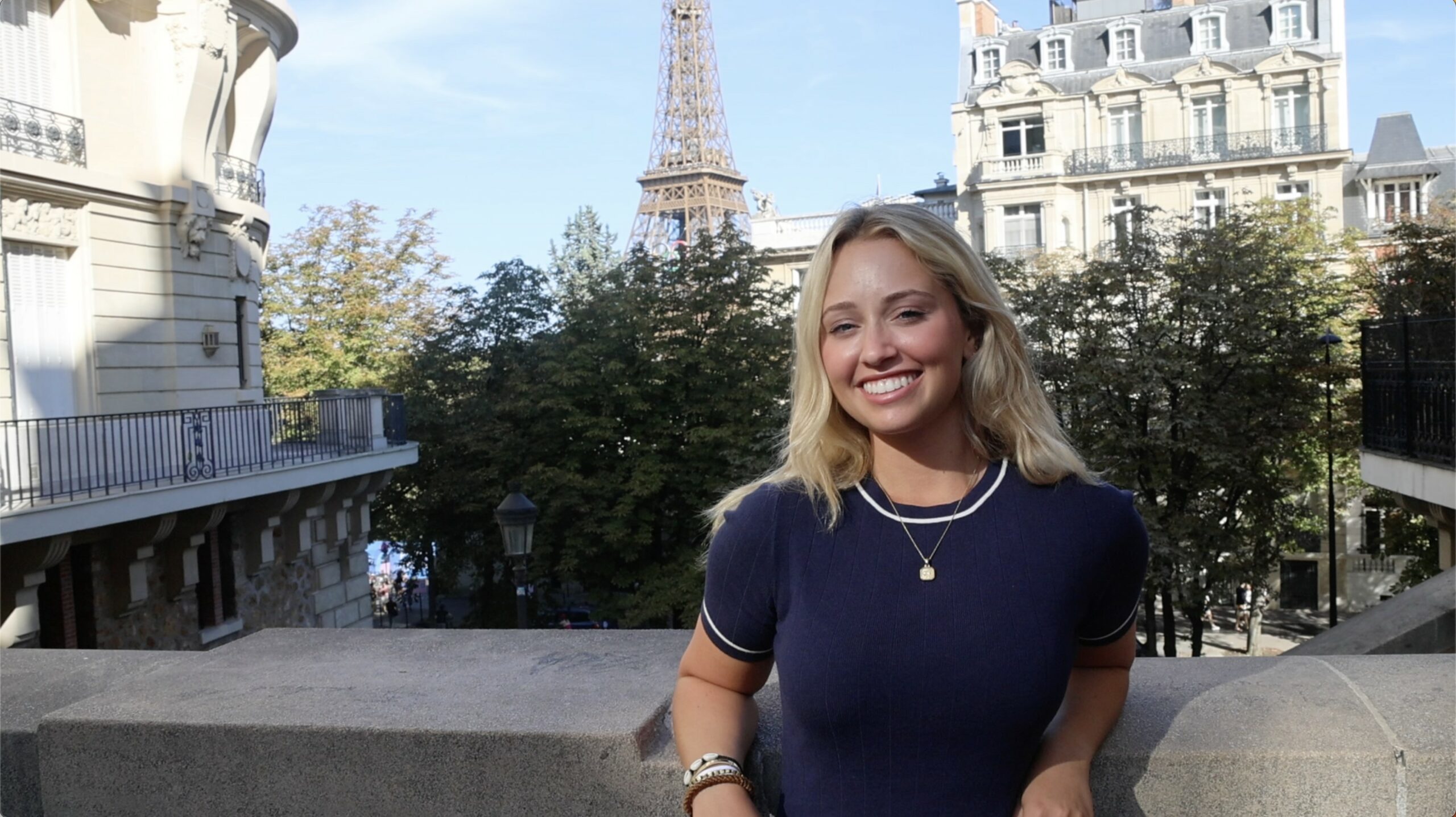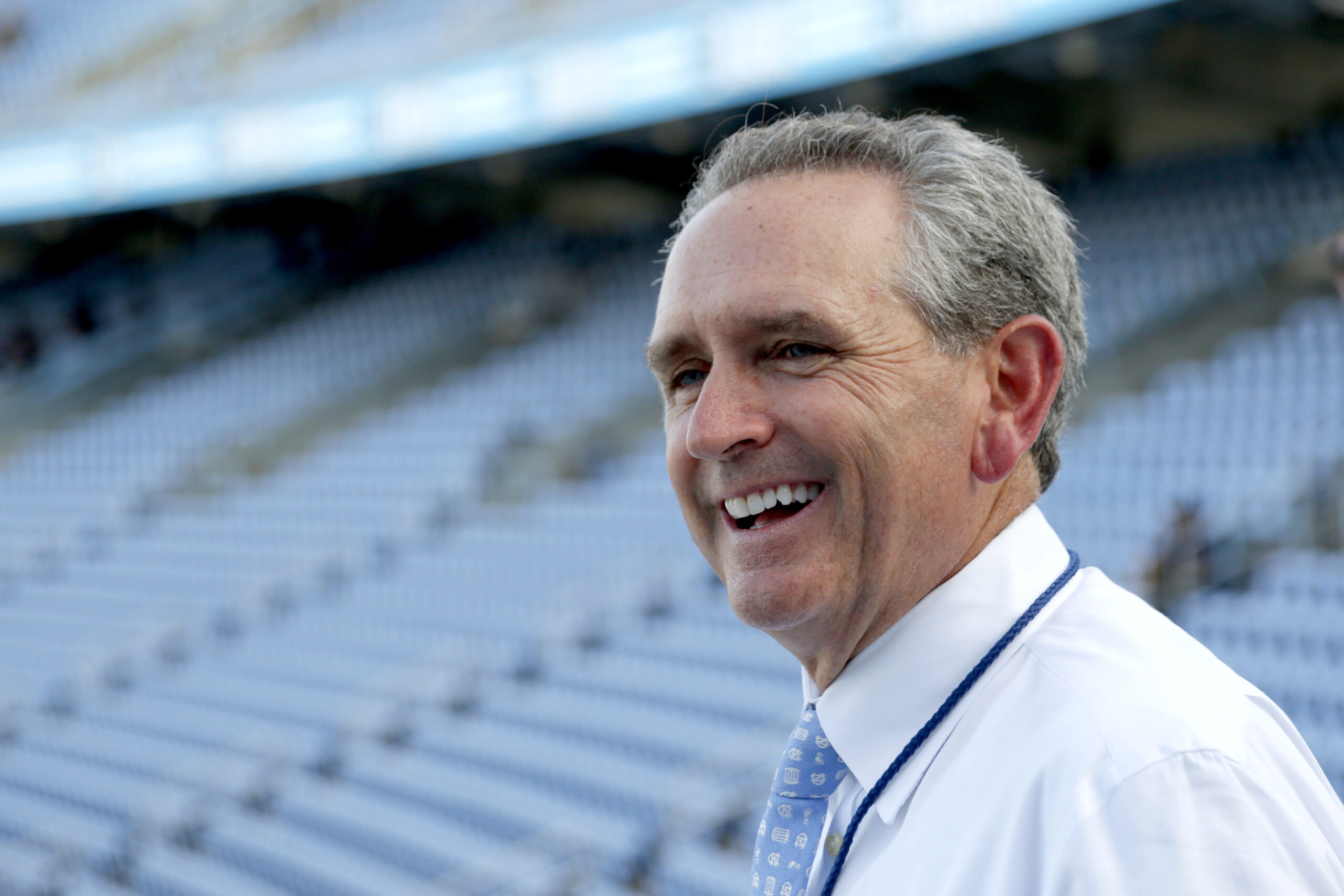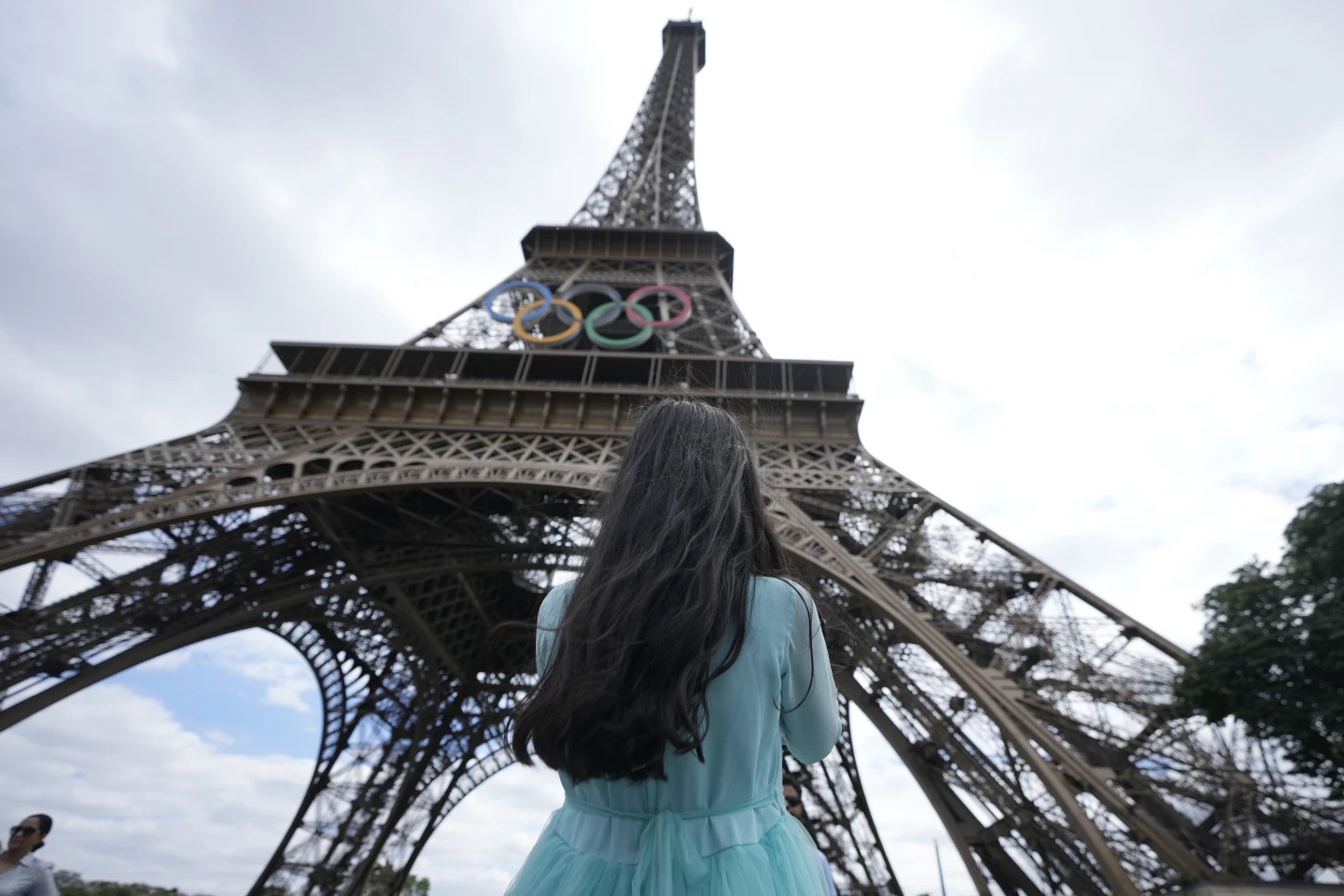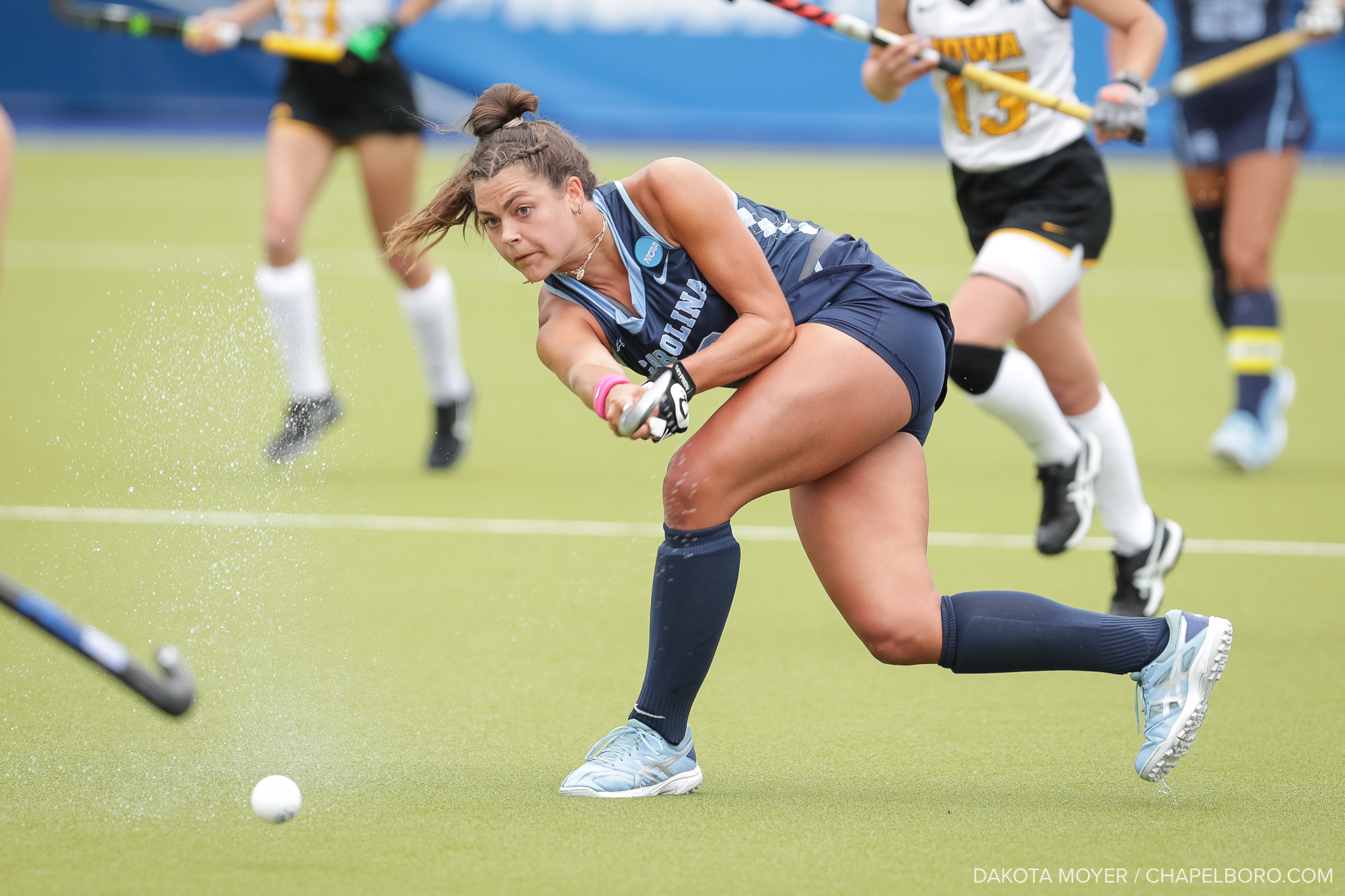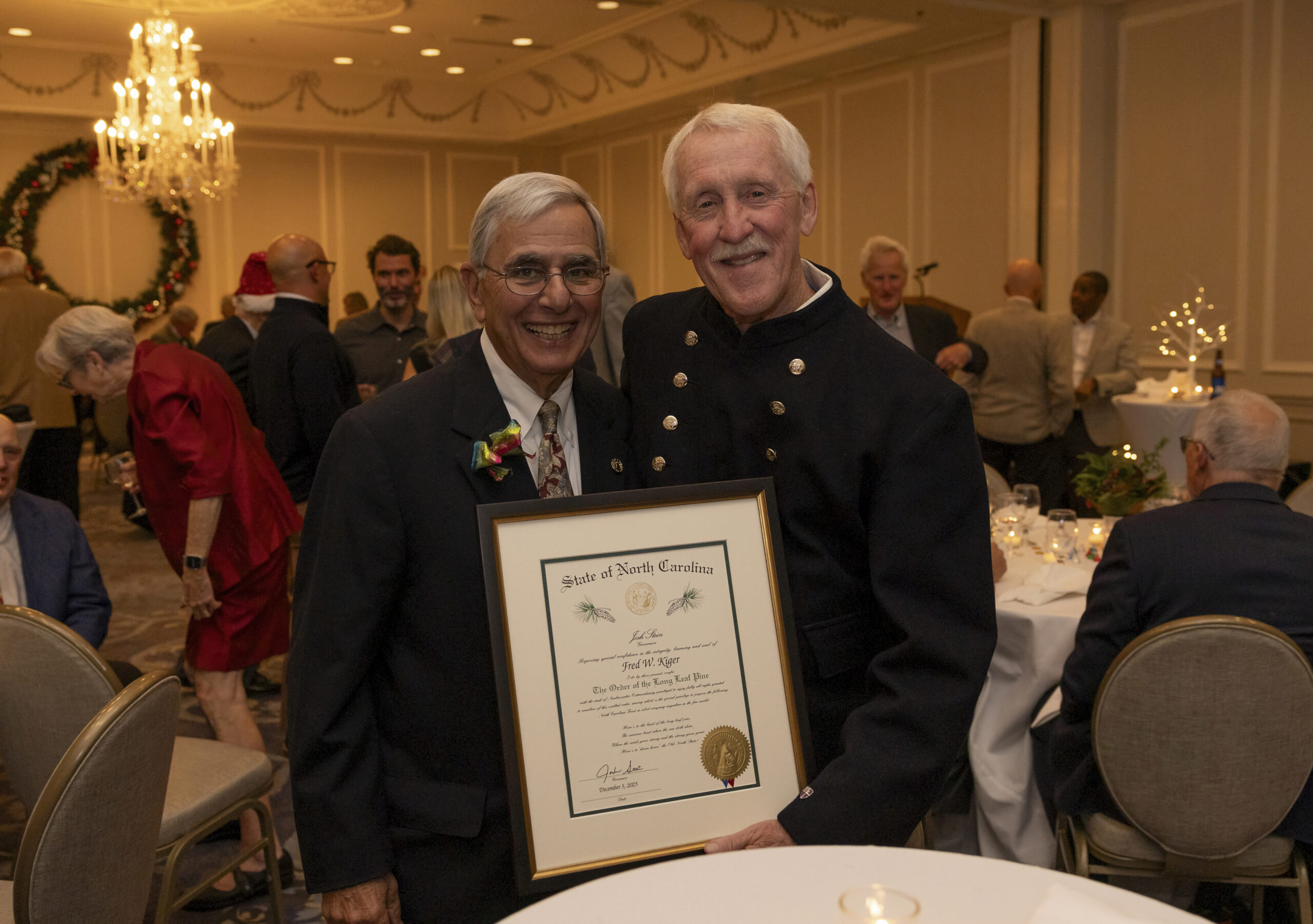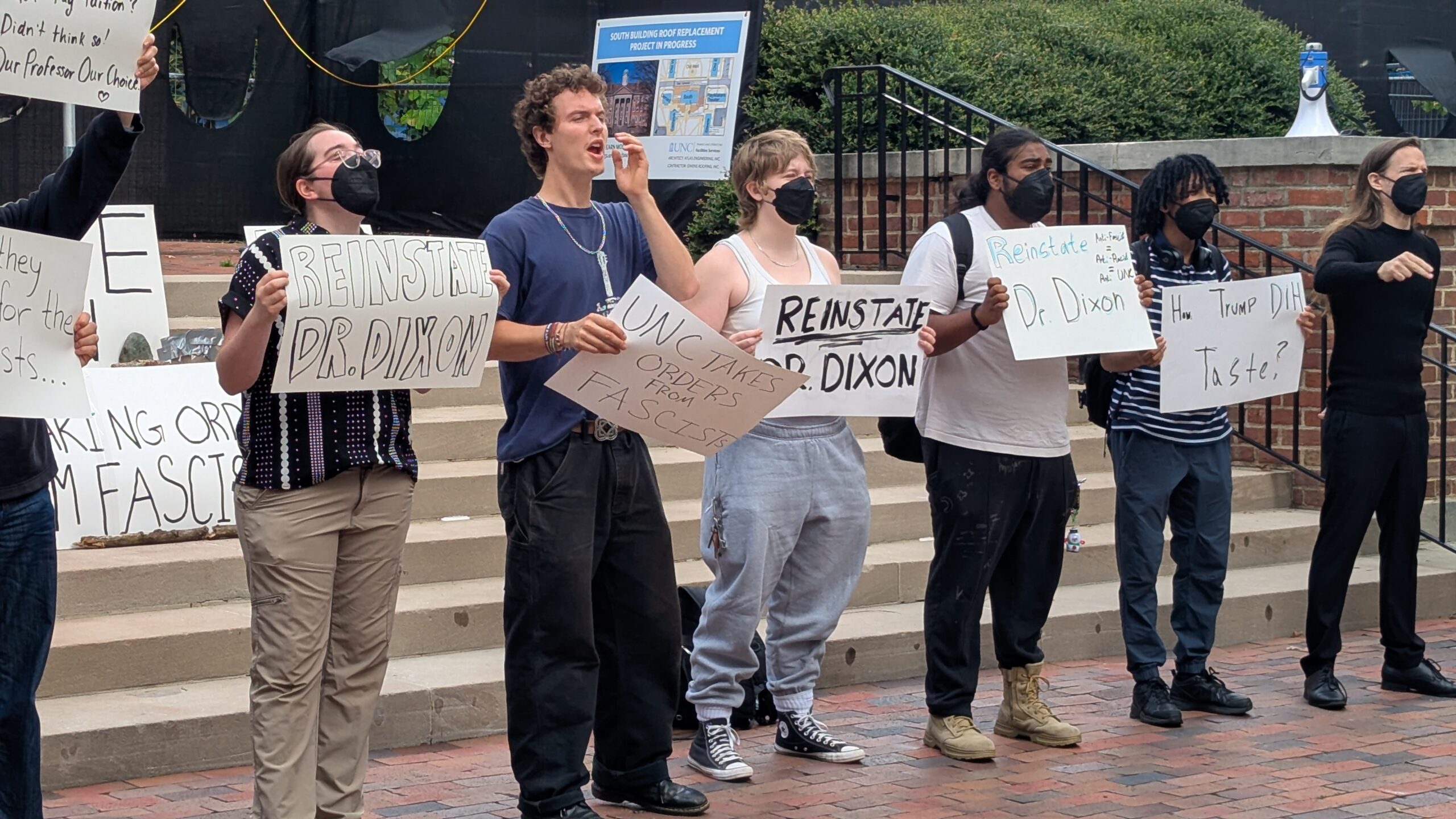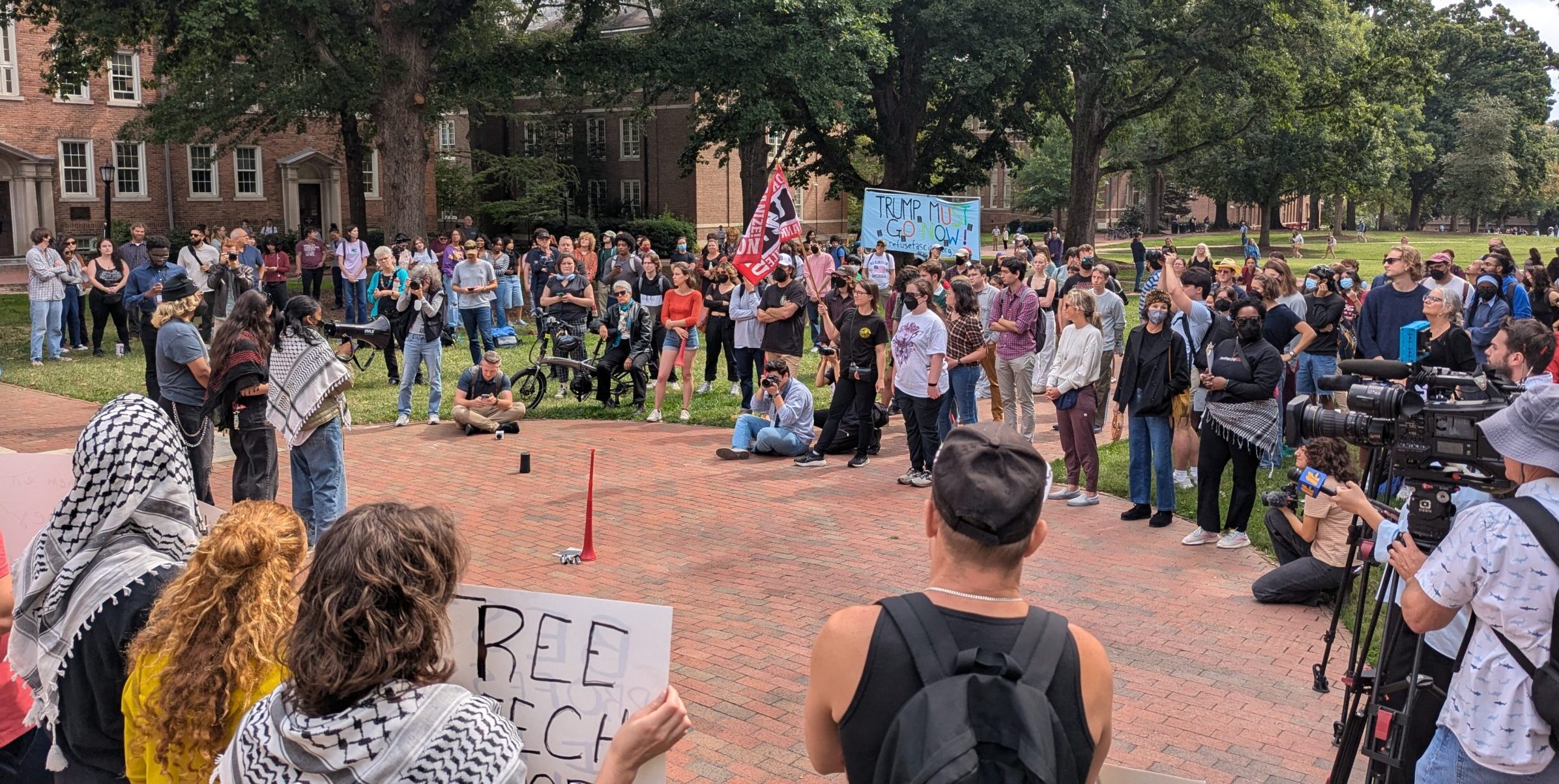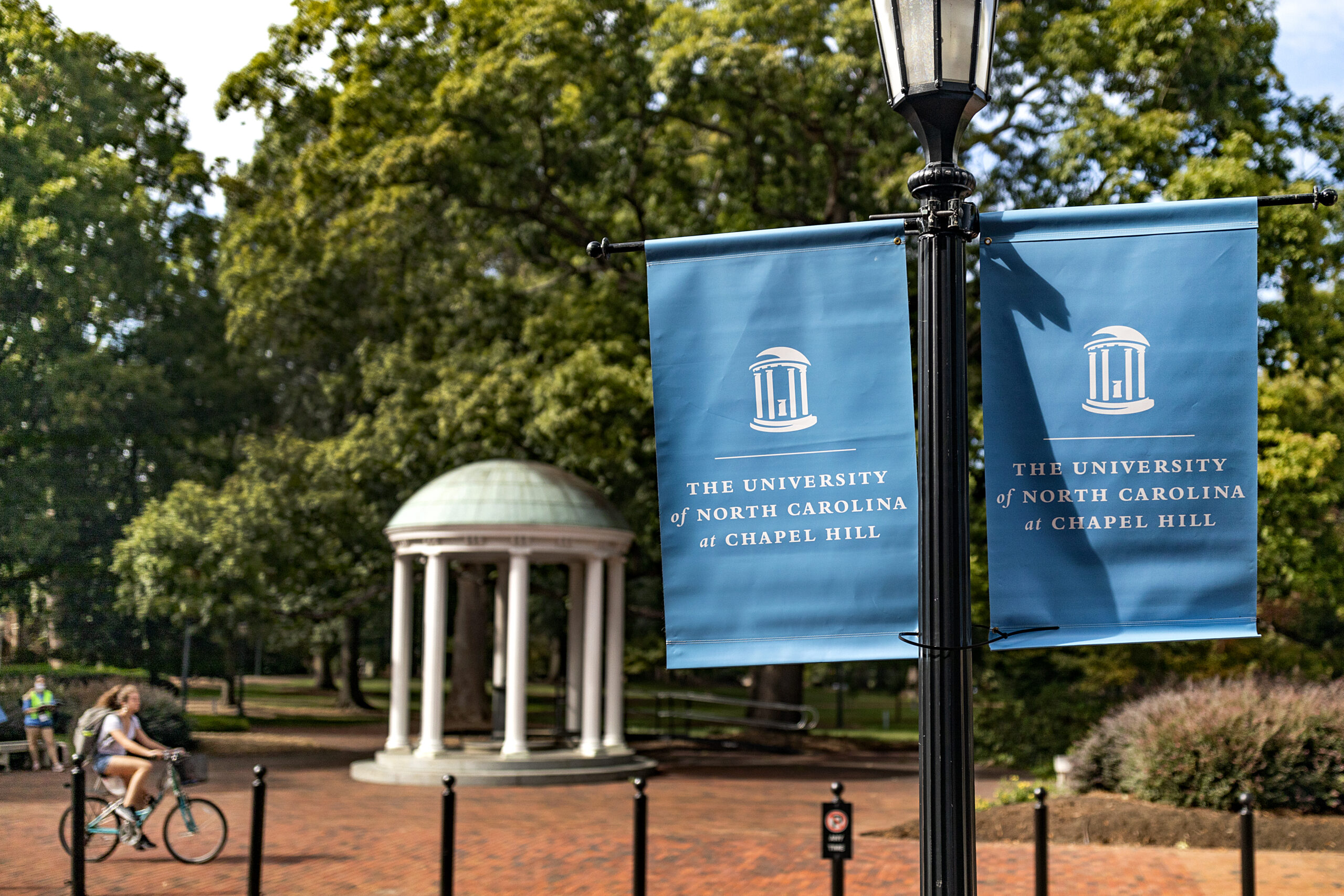Written by ASHLEY HUMPHREY
Matthew Andrews, a UNC-Chapel Hill Teaching Professor in the Department of History, began teaching History 220: The Olympic Games–A Global History in 2016. For the past two weeks, he has been in London and Paris with 19 UNC students to immerse themselves in the game’s rich history and promising future.
When the American historian wanted to teach a global history course, he thought there was no better way than by using the modern Olympics to explore global politics and international relations.
“You can learn anything by studying the Olympic Games–about global politics, about gender, about race relations, about civic renewal,” Andrews said.
Andrews and his cohort of students primarily studied the past Olympic games in London in 1908, 1948, and 2012. They studied British sports culture, visited Olympic sites, and even played cricket. The class syllabus requires three papers and a final project. Andrews took a study abroad trip to London once before, but this summer was the first time he had brought students to see the games live for a weekend. During their time in Paris, the group saw Italy and Poland compete in men’s indoor volleyball.
“Better atmosphere than the Duke-Carolina basketball game,” JT Tygart, a rising junior studying History and Political Science, said. “Better atmosphere than any sporting event I’ve ever been to. It was awesome.”
Paris joins London as the only two cities to host the games three times. Andrews shared his expert analysis of how the games went.
“I think it’s been going great,” he said on August 4. “If you take my class, I’ll tell you how the 1900 Paris Games were a disaster. They did not go well for Paris. The [1924] games weren’t all that great for Paris either. They lost a lot of money. It’s one of the earlier games that lost a lot of money. From what I can tell right now, the games are going great. The buzz in this city is just amazing.”
In History 220, Andrews challenges students to rethink the idea of Olympism, the belief that international unity can be achieved through sporting competitions. Before visiting Paris, Andrews had only been to the Los Angeles games in 1984. Seeing the games live for the first time in 40 years has softened Andrews’ opinion of the event.
“In my class, I kind of put on the hat of the critic of the IOC and the Olympic Games: too big, too expensive, too nationalistic, provokes tension rather than relieves tension,” Andrews said. “This has really opened my eyes to what a wonderful event the Olympic Games are. We were in the volleyball game yesterday with Italians and Poles, who were hugging each other, and singing, and dancing and it just seems to bring everyone together.
“There are so many people from all around the world in this city at this one time,” he added, “so I just think this has been a marvelous experience.”
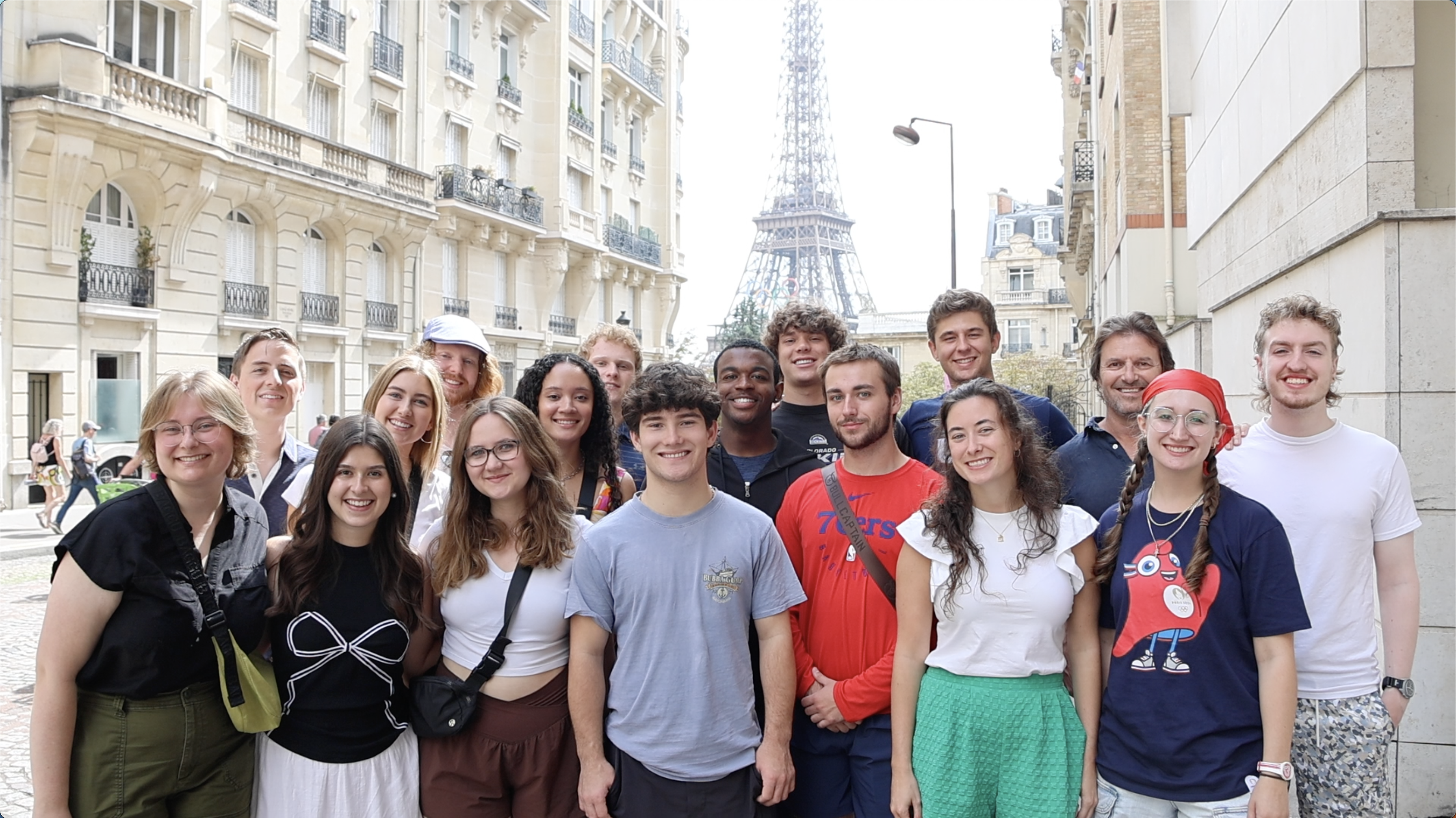
Matt Andrews (far right and back) stands with his class of HIST 220 students in Paris, France. (Photo via Ashley Humphrey.)
One critique of the modern Olympics is the wasteful spending used to build brand-new stadiums for competitions. To combat this, the International Olympic Committee has given preferential treatment to host cities that commit to using existing structures. Andrews believes the 2028 games in Los Angeles can be environmentally friendly and fiscally responsible.
“If any city can do it, Los Angeles can do it,” Andrews said. “With the pro sports infrastructure there — [plus] UCLA, USC, Long Beach State. There are some people who say the Olympics should just be in Los Angeles every four years because they can put it on. They can definitely afford to put it on.”
This fall, Andrews will put back on the hat of the critic to teach History 220. He shared his best advice for Olympic fans and followers.
“Just know the facts, attend the games, feel the joy, and make up your own mind.”
Featured photo via Ashley Humphrey.
The Chapel Hill Media Group is partnering with the UNC Hussman School of Journalism and Media to publish stories reported by students in Paris, France for the 2024 Olympic Games. Ashley Humphrey is one of 25 student journalists working under the direction of professor Charlie Tuggle, who are publishing their stories through a variety of North Carolina outlets.

